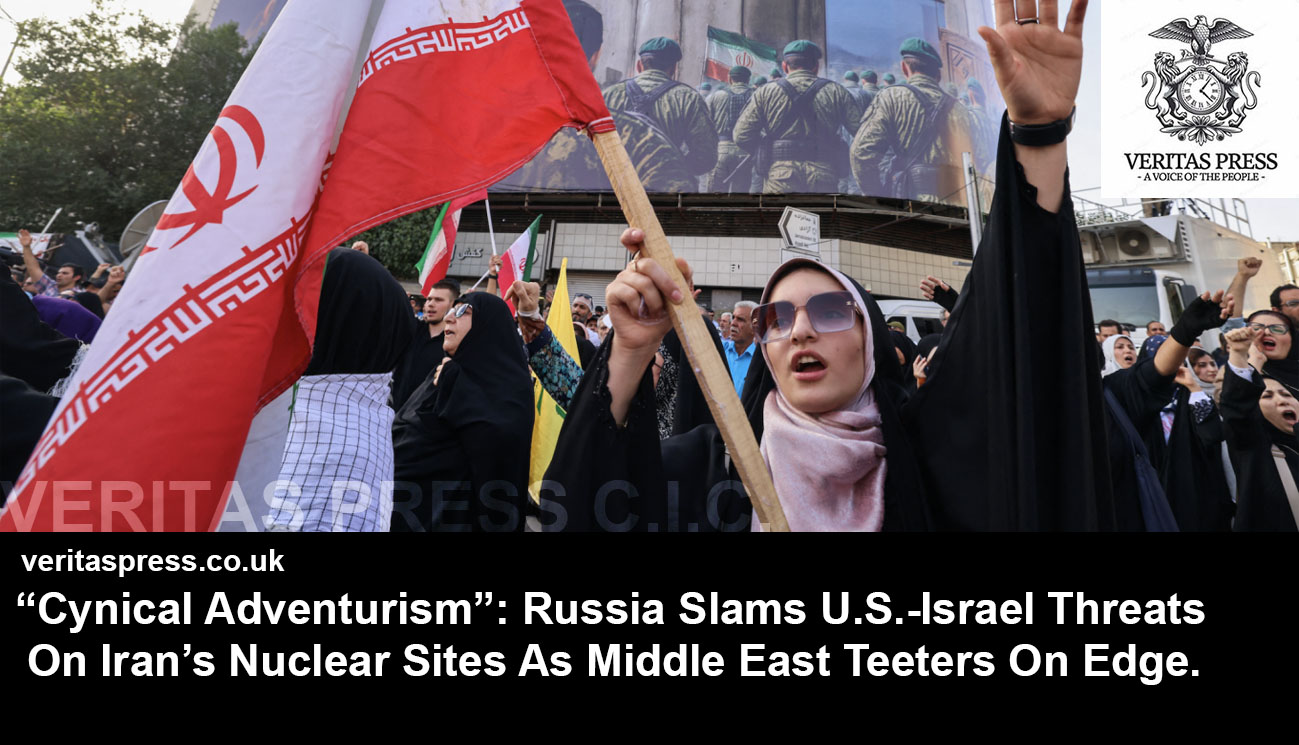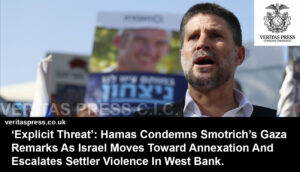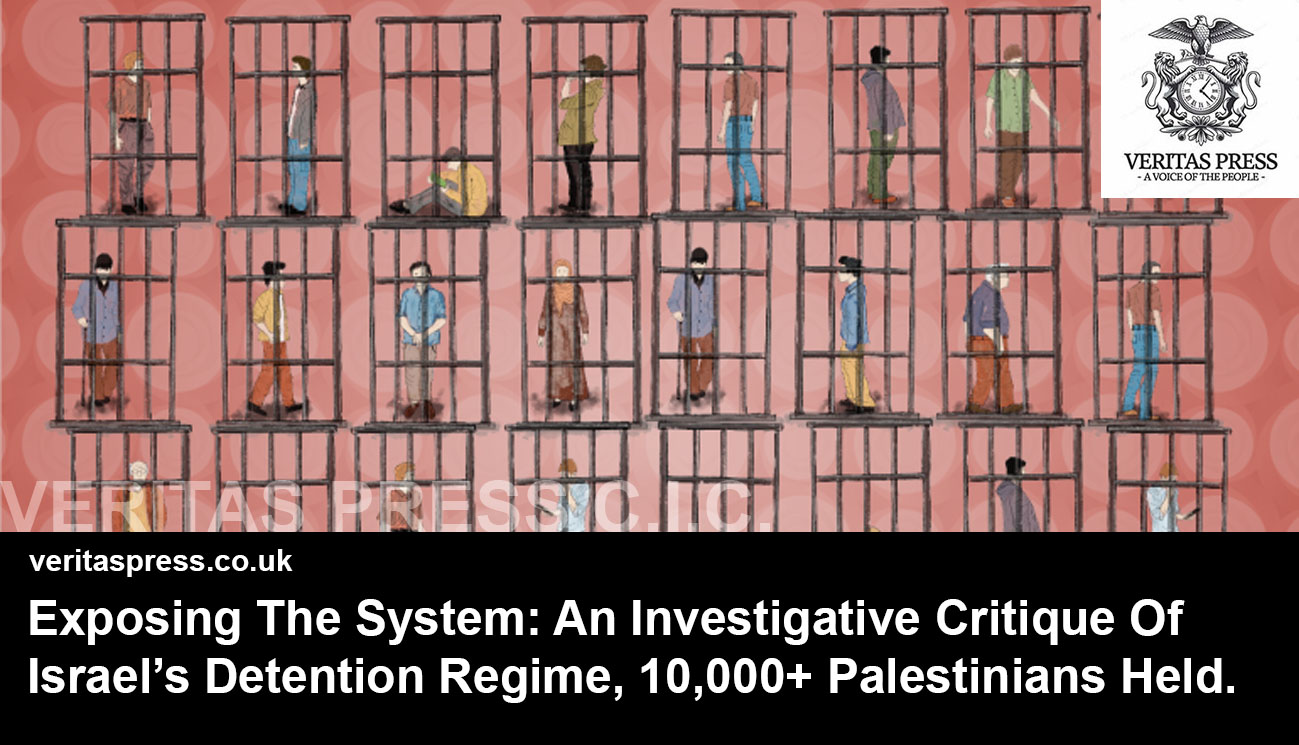Press Release: Veritas Press C.I.C.
Author: Kamran Faqir
Article Date Published: 30 July 2025 at 17:45 GMT
Category: Russia | Politics | Nuclear Sites
Source(s): Veritas Press C.I.C. | Multi News Agencies
Calls mount for accountability as experts warn of grave precedent and potential war crimes; Moscow condemns ‘fabricated pretexts’ for military aggression
RUSSIA/MOSCOW — Russia has issued its strongest condemnation yet of renewed U.S. and Israeli threats to bomb Iranian nuclear facilities, warning that Washington’s aggressive posturing, now echoed by Tel Aviv, risks pushing the Middle East toward a catastrophic regional war. The Kremlin’s denunciation comes amid global alarm over President Donald Trump’s vow to strike Iran “again and harder” if Tehran restarts its civilian nuclear program, just weeks after American air raids targeted three nuclear sites across Iran in a controversial military campaign.
“We are witnessing an unprecedented normalisation of military attacks on nuclear facilities under the cynical guise of non-proliferation,” said Russian Foreign Ministry spokeswoman Maria Zakharova on Wednesday. “These are fabricated pretexts, devoid of legal or technical basis, aimed not at preventing conflict but provoking one.”
A Region On The Brink:
The Kremlin’s rebuke follows the 12-day war in June between Iran and Israel, the most direct confrontation between the two in decades, which erupted shortly after U.S. fighter jets struck the Natanz, Arak, and Fordow nuclear complexes. The operation, code-named Midnight Hammer, was greenlit by the Trump administration without Congressional approval, raising concerns over its legality under both U.S. and international law.
Speaking to Al Jazeera, Iranian journalist Nour Abedini, who visited the bombed Natanz site two weeks after the attack, described the devastation:
“It was not just a technical facility; engineers lived there with their families. The bombing left entire areas in ruins. Dozens were injured. There was no warning. It was a clear message, and not just to Iran.”
Eyewitnesses in Isfahan province confirmed to IRNA that emergency responders faced delays due to lingering radiation concerns, fears that the U.S. Pentagon has dismissed as “exaggerated.”
But the International Atomic Energy Agency (IAEA) has expressed concern over the strikes, with Director-General Rafael Grossi warning that “military attacks on safeguarded nuclear facilities pose a direct threat to global nuclear security norms.” Grossi confirmed that all three bombed sites were under IAEA supervision and had shown no evidence of diversion toward weapons development.
“There was no justification for those attacks under international monitoring standards,” Grossi told Der Spiegel. “What we are seeing is a dangerous erosion of the rules-based order.”
A Shifting Red Line:
Iran insists its nuclear enrichment program remains within the limits set by the now-defunct Joint Comprehensive Plan of Action (JCPOA). Trump, who unilaterally withdrew from the agreement in 2018, now labels even peaceful enrichment as a “red line.”
During a press event at Turnberry, Scotland, where he hosted UK Prime Minister Keir Starmer, Trump warned:
“If Tehran flips the switch, we’ll flatten them again. We did it once, we’ll do it better.”
Such rhetoric has drawn fierce criticism from rights organisations and non-proliferation experts. Tariq Rauf, former head of the IAEA’s verification division, told The Guardian:
“This is not about disarmament. It’s about power politics dressed up as non-proliferation. There’s no serious evidence Iran is building a bomb, yet they are being treated like North Korea.”
The International Crisis Group has warned that further strikes could “trigger retaliatory action not only from Iran but from its allies in Lebanon, Syria, Iraq, and Yemen,” setting the stage for an uncontrollable regional escalation.
Russia, China, North Korea Push Back:
Russia’s condemnation has been echoed by China and North Korea. Chinese Foreign Ministry spokesperson Guo Jiakun said on Monday:
“Attacking nuclear facilities monitored by the IAEA is a grave breach of international norms and the UN Charter. The United States is setting a precedent that undermines its own credibility.”
At a closed-door emergency session of the UN Security Council, Chinese Ambassador Fu Cong called for “immediate de-escalation,” urging Israel to cease its covert operations and air raids. He noted that even U.S. allies expressed concern privately over Washington’s unilateralism.
North Korea, in a rare joint statement with Iran’s foreign ministry, accused the U.S. and Israel of “genocidal war provocations” and condemned what it described as a “Zionist-imperialist axis.”
Moscow’s Calculated Response:
Despite Russia’s tough rhetoric, analysts say Moscow is unlikely to commit militarily. President Vladimir Putin told Iranian Foreign Minister Abbas Araghchi during a recent Moscow visit that “Russia will continue to support the Iranian people,” but offered no concrete military guarantees.
“Iran has become a pawn in a geopolitical chessboard between declining American unipolarity and emerging multipolar alliances,” said Dr. Ladan Boroumand, a political analyst at the Abdorrahman Boroumand Foundation. “Putin is playing a cautious game, strong on words, but measured on action.”
Kremlin spokesperson Dmitry Peskov told TASS that Russia’s support would be “proportional to Iran’s needs,” while also hinting at Moscow’s strategic reluctance: “Israel is almost a Russian-speaking country,” he said, referring to the large population of Russian-Israeli dual nationals.
Still, Russia has offered to serve as a mediator in restarting indirect nuclear talks between Washington and Tehran, which collapsed following the Israeli offensive.
Media and Public Backlash:
A Haaretz editorial this week criticised the Israeli leadership’s coordination with Washington, warning that “pre-emptive strikes on nuclear sites based on American election-year hysteria risk igniting a war Israel cannot control.”
Meanwhile, U.S. progressive lawmakers and human rights groups have blasted Trump’s renewed threats as reckless. In a statement, CodePink accused the former president of “deliberately courting regional war for electoral gain,” while Physicians for Social Responsibility warned that bombing nuclear sites risked long-term radiological contamination.
“A strike on a civilian nuclear facility is not just an act of war — it’s potentially a war crime,” said Dr. Henrietta Foster, a radiological health expert at WHO. “We’ve studied the consequences of similar attacks in Iraq and Syria. The risks to civilians and the environment are immense.”
Gaza Crisis Adds to Tensions:
Zakharova also condemned Israel’s continuing assault on the Gaza Strip, where over 25,000 Palestinians have reportedly died in nine months of bombardment and siege. Russia urged immediate humanitarian access.
“The situation in Gaza is catastrophic. We share the assessments of the UN and humanitarian organisations,” she said. “Aid must reach civilians without delay. Continued blockade and starvation are indefensible.”
UNRWA, Médecins Sans Frontières, and the ICRC have all confirmed that Israel is restricting humanitarian aid, sparking growing international outrage. Some Israeli activists have broken ranks with their government. Amos Gil, of the anti-occupation group Breaking the Silence, told BBC Arabic:
“While Israel speaks of security, we’re systematically destroying a people’s ability to survive. This cannot go on.”
Conclusion: Eroding Norms, Escalating Risks, A Reckless Path Toward Catastrophe
What we are witnessing is not merely a diplomatic standoff or a regional flare-up, it is the systematic dismantling of the international order that has governed the use of force and safeguarded civilian infrastructure for decades. The United States, under the resumed leadership of Donald Trump, has shown open contempt for international law by targeting nuclear facilities that were under IAEA supervision, while Israel, emboldened by American cover, continues to operate with impunity from Gaza to Tehran.
The precedent set by these strikes, and the renewed threats to carry out more, effectively greenlight the use of military force against civilian infrastructure based on pretexts, not proof. Experts warn this could become a template for other powers to justify pre-emptive attacks under the guise of non-proliferation or national security, from South Asia to the Korean Peninsula.
The IAEA, the UN Security Council, and much of the world are now bystanders to a dangerous shift: a normalisation of unilateral aggression against protected sites, in violation of the Geneva Conventions and the UN Charter. And yet, accountability remains absent.
Russia’s condemnation, while forceful, is still limited to rhetoric. Its selective restraint, couched in realpolitik considerations over Israel’s Russian-speaking population and broader geopolitical calculus, speaks volumes about the fragility of current alliances and the hollowness of global deterrence mechanisms.
Meanwhile, the voices of those directly affected, Iranian engineers, Palestinian families, aid workers, and anti-war activists, are being drowned out by a geopolitical narrative driven by militarism, domestic politics, and election-year opportunism.
If this trajectory continues unchecked, the world could soon face not just another regional war, but the collapse of the very norms that have, however imperfectly, constrained the worst excesses of state violence. The question is no longer whether a red line has been crossed, but how many, and whether anyone is willing to hold those responsible to account.
Zahra Samadi, Elena Teslova, And James Creighton Contributed Additional Research, Reporting, And Are Credited Accordingly.
Tags:




























Leave a Reply